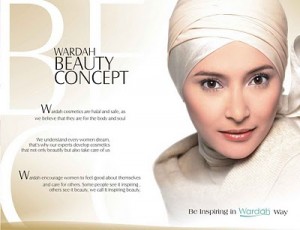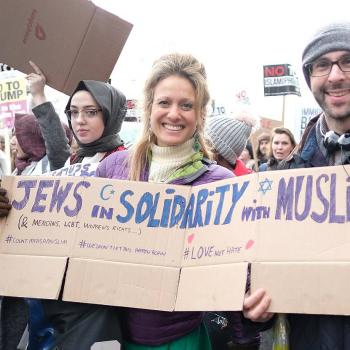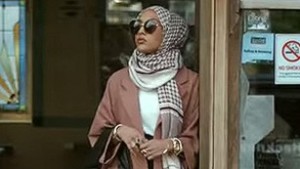This post was written by guest contributor Afia R. Fitriati (@AfiaRF).
The gaffes in the latest ad campaign of Indonesia-based Wardah Cosmetics are as clear as daylight – so clear that a student in my marketing class had raised an issue with it even before I had the chance to see the commercials.
http://www.youtube.com/watch?v=J7Css9izUYY
“If their selling point is halal – and thus Muslim-friendly – cosmetics, then why do they promote skin-lightening products? Isn’t it discriminatory to promote lighter skin as prettier than darker one?” my student asked.
A few days later, when I finally had the opportunity to spot the commercial in question on TV, my husband quickly pointed out a second blunder in the clip, “Wouldn’t her hijab get wet if she washes her face without taking it off like that?”
The commercial that drew my student’s and my husband’s critical comments is only one of a few commercials of Wardah’s that were launched recently. In addition to the skin-lightening products campaign, which features two famous Indonesian hijabi actresses, Wardah has also released another commercial series that feature supposedly modern Indonesian women in different settings of their lives, such as chatting with friends and on her wedding day. Unfortunately, these commercials also have their share of eyebrow-raising elements as well.
For instance, the “Falling in Love”episode features a pretty girl – a non-hijabi who is the main protagonist in this commercial series – recommending a Wardah lipstick product to her two friends (one is a hijabi and the other one a non-hijabi). One of her friends remarks that the lipstick is probably the reason why the pretty girl has “admirers.” Towards the end of the commercial, the pretty girl coyly makes suggestive eye contact with a handsome guy who passes her by. Then, the tagline appears: Wardah, Inspiring Beauty.
http://www.youtube.com/watch?v=gIHLpPsEOd0
It is apparent that the strategy behind these commercials is to promote Wardah, which traditionally positions itself as “the cosmetics for Muslim women,”as a more mainstream cosmetics label. The new campaigns target middle-class Indonesian women who may or may not be Muslim, hijabi as well as non-hijabi. In other words, Wardah is selling itself as a halal-certified Pond’s or Olay, if you will.The strategy seems pretty good, if only its execution were smarter.

What’s even more disappointing for me is that a long-standing, Muslim-related brand like Wardah still fails to give a somewhat accurate portrayal of the multidimensional Muslim women. The only improvement that I’ve seen as compared to their previous ads is the showcasing of non-hijabis in the ads to imply that Wardah embraces the diversity of its customers. But given their decades of experience in an industry that – in the words of Revlon’s founder Charles Revson – “sells dreams,” I’m expecting much more refined campaigns.
For example, why stick to the demure stereotype of the idealized Muslim women? A streak of strength or independence in the commercials would resonate better with real women like myself, for example, and would certainly be more relevant to the “Inspiring Beauty” tagline. Or how about linking cosmetics to a woman’s personal joy, as opposed to the need of pleasing others, for a change? And please don’t tell me that a bold idea in the beauty industry will not work. The Dove Campaign for Real Beauty was a smashing global success because it celebrates women in their own skin—wrinkles and all, and UK-based Lush supports Palestine’s freedom regardless of complaints.
A recent New York Times article underscores the significance of commercials in broadening the definition of Muslims. The article was written after a Prudential commercial featuring a Muslim man as “an appealing, everyday American” appeared on several major channels in the US. Samuel G. Freedman wrote,
“As if to underscore the point, the Prudential commercial with Mr. Abdul-Rashid was appearing on television during the same period last fall that saw two widespread commercial campaigns vilifying Muslims. One was the series of ads on New York subways and buses placed by a group led by Pamela Geller, the outspoken blogger and critic of Islam, which depicted a worldwide conflict between the civilized West and Islamic “savages.” The other was the billboard during the presidential campaign that showed President Obama submissively kissing the hand of a sheik.
Then, during the Super Bowl last weekend, a Coca-Cola commercial trotted out the stereotype of the Arab on camelback. As points of comparison, consider that Frito-Lay retired its ‘Frito Bandito’ caricature more than 40 years ago. And in 1989, Quaker Oats removed Aunt Jemima’s kerchief and gave her pearl earrings so she no longer evoked a house slave.”
Despite the praises received for this commercial, however, Prudential has repeatedly declined to comment on the campaign.
“Prudential had no idea Mr. Abdul-Rashid was Muslim,” the New York Times article quoted Deborah Meany, the company’s vice president for global communications. It seems that behind this admirable commercial, Prudential considers it risqué to openly associate its brand with the Muslim population.
Because we can’t always expect big, global brands to spearhead the change in faulty stereotypes of Islam and Muslims, it is important that growing local brands like Wardah realize the significance of their marketing campaigns in shaping public perceptions. Going with the flow of “normal” practices in the advertising industry may seem like the easy and safe way to achieve the brand’s objectives. But such perspective cannot be further than the truth in this age of transparency and short attention span. As marketing guru Seth Godin in Linchpin says, “It’s time to stop complying with the system and draw your own map”. In the same book, he also says, “You don’t become indispensable merely because you are different. But the only way to become indispensable is to be different. “
Given their nature, brands claiming to carry Islamic values are already different than other brands. It is time that they embrace and take pride in those differences. If such brave initiative comes from a Muslim-owned company that sell halal products like Wardah, I promise I will be the first person to give a standing ovation.















